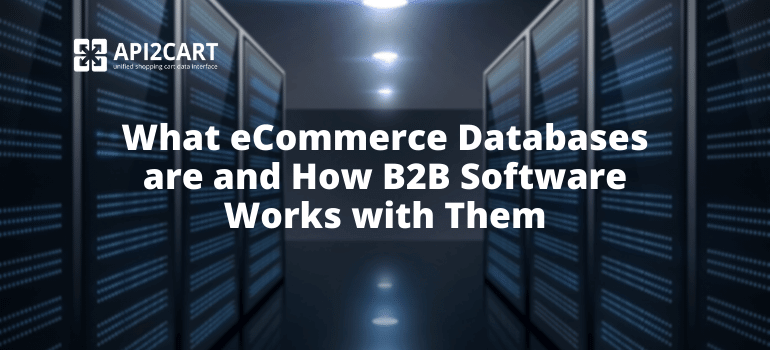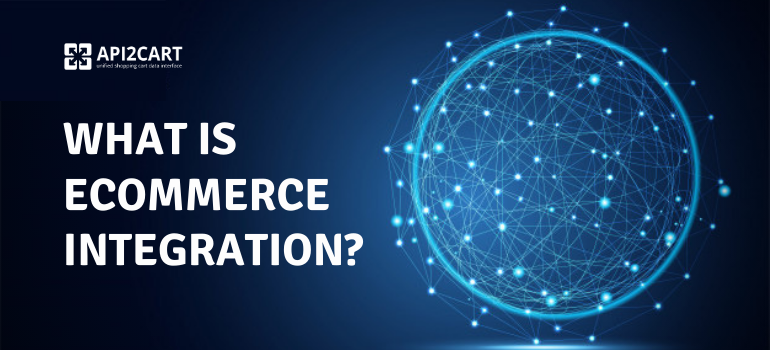
Data is driving business growth and opportunities, but only for those who know how to handle data efficiently. It is particularly true of eCommerce business, as it involves processing large amounts of data.
All valuable information about an eCommerce site, including product descriptions, customer data and reviews, inventory levels, and more, is stored in a database. In this article, we will examine databases and their purpose for online stores. And what you, as a B2B eCommerce software vendor need to know about them.
What Is an eCommerce Database?
An eCommerce database (sometimes called a shopping cart manager) is a repository that contains huge amounts of structured information used by an eCommerce application, online payment or some 3d party systems. A typical database is similar to an Excel spreadsheet. There are columns and rows. Columns names specific information types, such as various product information, stock numbers, prices, discounts, shipping costs, and many other fields for eCommerce websites. Rows contain the actual information for each of those columns.
It is often thought that information is stored by an eCommerce platform. However, it is only partly true. In reality, those platforms all store information in a database, querying it each time a page is rendered or a transaction is initiated.
Data Types
Data can be divided into two categories:
- Web content.It includes all you see when browsing a website: FAQ, product descriptions, prices, “about us” pages, etc.
- Transactional data. It is the records of actions taken by users on a page. Transactional records include customer and order info, inventory updates, etc.
The design of your database will determine what it stores, how it’s arranged, and how your system’s code can access it.
Database Functions
Here are 3 basic eCommerce database features:
- Managing and tracking transactions. It is one of the most important jobs of the database. It keeps track of every order along with the details, needed to process an order or other transaction.
- Systematizing products. Some stores contain hundreds, thousands, or even millions of products and their variants. It is critical to organize this mix of products and options.
- Structuring store data. It is not relevant whether you have a few products or a million, they are all arranged similarly. Data structuring is what makes creating the code to access that data easier. eCommerce applications don’t have to operate the data, just the structure.
How eCommerce B2B Software Works with Databases
One more interesting thing about eCommerce databases is that B2B eCommerce software highly relies on information stored in those databases. It doesn’t matter whether it is an order fulfilment system or mobile app building platform, such software needs customer, product, order and other data to run its functions. Getting access to this data is not an easy task, as it requires integration with the shopping cart, which stores all that data for e-retailers.
There are many different ways to design a database, organize and structure data in it; there exist a few query languages and many ways to set up communication between the platform and its database. This versatility makes integration even more difficult, especially if you connect with many shopping carts. There are two reasons for that:
- developing integration requires a qualified developer with vast expertise;
- elaborating each platform is uniquely challenging and complex, as integration model that fits one platform, doesn’t work for another.
Getting just one connection established takes about a month and a few thousands of dollars, not to mention its further updating and maintenance. Wondering if there are any less painful ways out?
API2Cart is a solution that can help you connect to multiple platforms at once with time and money saved. The service is integrated with 40+ shopping carts and enables you to retrieve all the necessary information and operate with order data, categories, customer info, transactional records, etc.
If you are interested in integrating your B2B solution with many shopping carts and would like to talk about the technical details, please schedule a consultation with our representative or try how API2Cart would work for your business.



